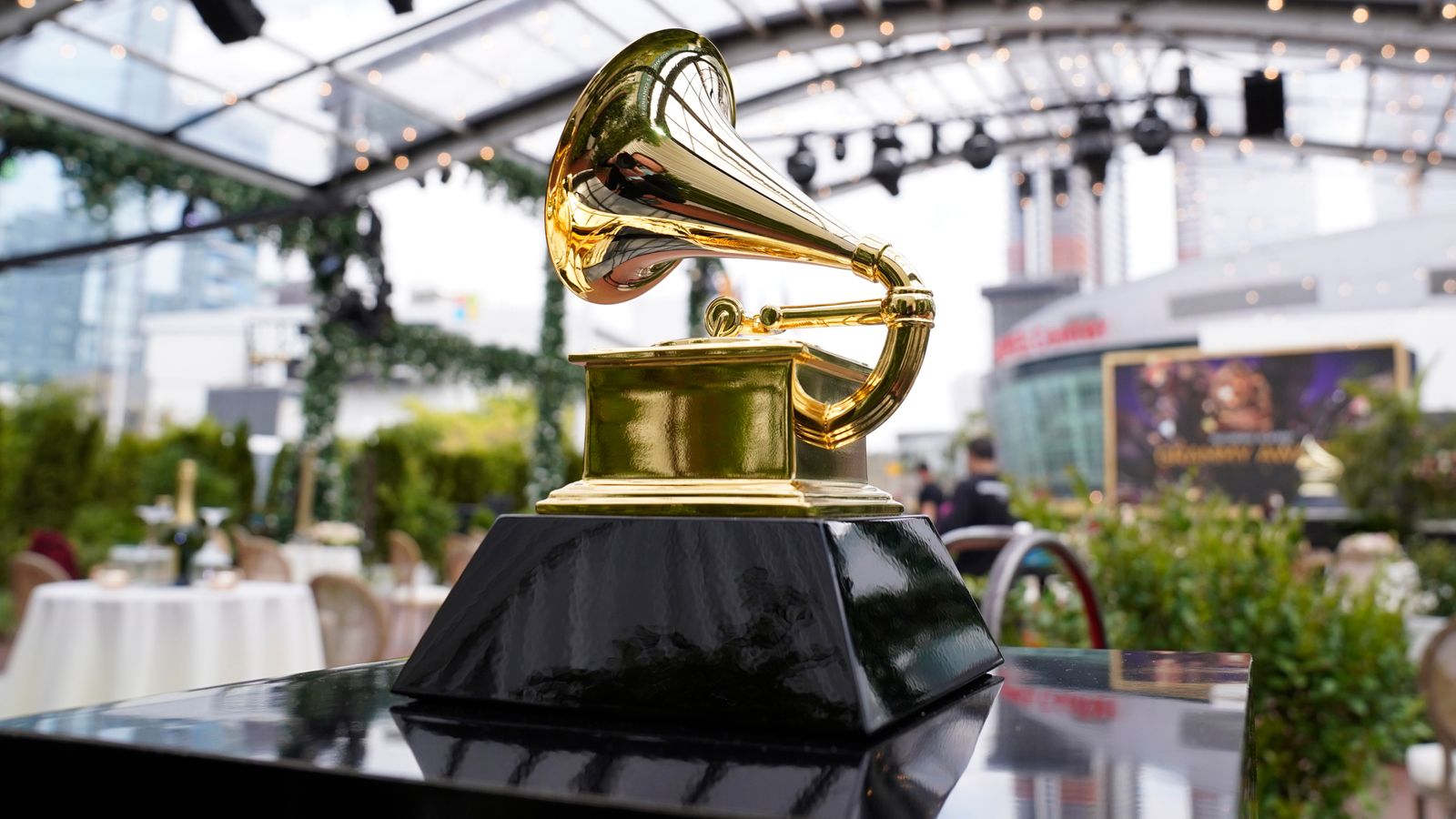The boss of the company behind the Grammys has clarified the ceremony’s stance on the use of artificial intelligence (AI) in the music industry.
Recording Academy CEO and President Harvey Mason Junior said: “AI, or music that contains AI-created elements is absolutely eligible for entry and for consideration for Grammy nomination. Period”.
It follows new guidelines, which said that AI-only work was banned, and that “only human creators are eligible” for a Grammy, the world’s most recognised music award.
The new rules also stated: “A work that contains no human authorship is not eligible in any category.”
The addition to the rulebook – which the Recording Academy said was made in a bid to better reflect the evolving music industry – sparked a multitude of headlines.
Music creators must also contribute to at least 20% of an album to earn a nomination. Previously, any producer, songwriter, engineer or featured artist on an album could earn a nomination for album of the year, even if the person only had a small input.
Mr Mason Jr said the Grammys, much like the music and performance industry as a whole, was still coming to terms with the new technology.
Further clarifying the Recording Academy’s stance, he said: “What’s not going to happen is we are not going to give a Grammy or Grammy nomination to the AI portion [of a song].”
Read more:
Mark Zuckerberg v Elon Musk: How cage fight plan unfolded
YouTubers announce second pregnancy
An example of this in practice would be a track featuring an AI or voice modelling program performing the lead vocal – while it would be eligible in a song writing category, it would not be eligible in a performance category.
If a song was sung by a human in a studio, but the lyrics or track was written by AI, the song would not be eligible in a composition or a songwriting category.
Mr Mason Jr went on: “As long as the human is contributing in a more than de minimis amount, which to us means a meaningful way, they are and will always be considered for a nomination or a win.
“We don’t want to see technology replace human creativity. We want to make sure technology is enhancing, embellishing, or additive to human creativity. So that’s why we took this particular stand in this award cycle.”
Recent use of AI technology by high-profile artists include David Guetta’s Emin-AI-em and Grimes’s generative audio tool which allows anyone to clone her voice.
Mr Mason Jr says the Recording Academy have undertaken extensive research, including holding tech summits, and that AI conversations “really came to a head in the last six months.”
In June, there was outcry after Paul McCartney revealed “the last Beatles record” had used AI to extract John Lennon’s voice from an old demo tape.
Mr Mason Jr said that while he didn’t know the full breakdown of the song’s production, that from “early descriptions” of the track’s creation, it “would be absolutely eligible [for a Grammy]”.
He also said that while he can’t predict the future, it would be possible that we could see songs at least partially created with AI nominated for a Grammy next year.
He said: “People are using the technology. I’m imagining it’s going to be involved in a lot of records a lot of songs this year, so we’ll see if some of them get nominated or not, but I’m sure there’ll be some that will be submitted.”
Click to subscribe to Backstage wherever you get your podcasts
Much has changed since the first Grammy Awards ceremony took place in 1959, with a recent influx of AI-generated songs, appearing to feature the voices of some of music’s biggest stars.
Drake, The Weeknd, Michael Jackson, Kanye West and Ariana Grande have had their voices hi-jacked by the new technology over the last year.
Meanwhile, the ongoing actors’ and writers’ strikes going on in the US both include negotiation over the use of generative AI, calling for more safeguards to ensure that it will not be used to replace them in their roles.
The 2024 Grammy Awards take place in Los Angeles on Sunday 4 February.

